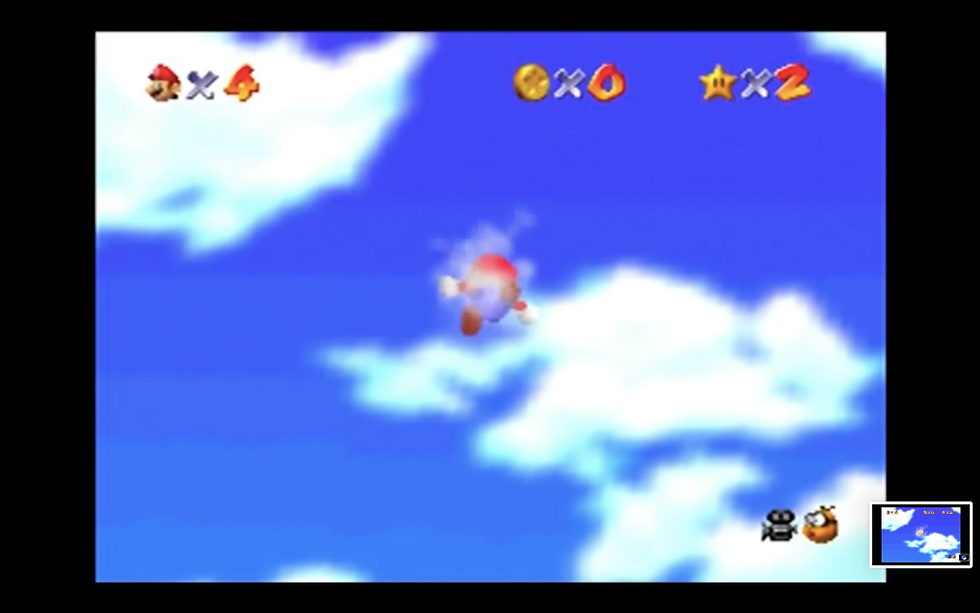Game Review: Populous
- Lorenzo Orders

- Oct 16, 2019
- 4 min read
For my review, I played the game Populous for the SNES. Released in 1991, it is a port of the Amiga title of the same name from 1989. Populous is regarded as on of the first “god games” that puts the player in the perspective of an omnipresent being who cannot directly influence individual’s actions. In Populous, one must manipulate a group of “followers” into vanquishing an opposing group throughout 598 different levels. At the beginning of each level, the player is in control of a small group of “walkers” and it is their job to guide the walkers to build more settlements and to help those settlements grow in size so that they might generate more walkers themselves. The player cannot directly tell the walkers to perform a specific action, but instead has four different “states” for the walkers to engage in. There is an “expansion” state where the walkers aim to build more settlements. There is a “gather” state where walkers can join together to create a stronger walker from the union of two or more walkers. There is an “exploration” state where walkers will follow a leader on a journey towards a papal magnet placed by the player. Finally, there is a “battle” state that incentivizes attacking enemy settlements near the player’s settlements. If an enemy settlement is successfully attacked, it then comes under the control of the player.
This game absolutely reeks of imperialism and relies on a strong “us versus them” mentality to encourage progression through each level. The main tool to encourage walker development is a terraforming tool that raises and lowers land to create flat space that settlements can use to grow crops. Because the player is given free reign to do this whenever a player-owned settlement is onscreen, a recommended tactic is to re-level the ground of nearby enemy settlements to immediately destroy them. This experience brings to mind an uncanny parallel to the Israeli settlement policy of establishing new Israeli settlements for the purpose of evicting Palestinians who pose a perceived threat to Israel. And because this terraforming can also destroy enemy farms, disrupt their food supply, and limit the settlement’s effectiveness, it resembles the U.S. policy of hunting the buffalo on the Great Plains to near extinction for the purpose of demoralizing and weakening the Native American tribes living there. Both strategies are heavy-handed moves that do nothing to solve the underlying problems that created the situations in the first place, and only serve to support the aggressor.

Encouraging the player to rely on altering their opponent’s land is not a strategy that I found appealing, and the enemy’s quick rate of rebuilding settlements leads the player to frantically terraform any nearby land in a bid to forestall the creation of more enemy settlements. At the end of a short-sighted attempt to protect the player’s settlements, all that is left is a set of land unsuitable for re-settlement by either player. The developers miss an opportunity to make this situation into a learning moment for the long-term consequences of forcing a country’s presence onto a land previously used for other purposes. Instead, the player can quickly and easily re-terraform the land to fit their needs or leave it in its ruined state to deny the opponent a chance to easily establish new settlements there. In my playtime, I would leave this area in its uneven state because I already had many settlements, and one more settlement would not make a meaningful difference in my production.

In my opinion, this game ignores the long-term future of a population. The only way to win each level is to completely exterminate the opponent and take over their land. Then, once the level is completed, the player switches their attention to the next level. The previous levels are never referred to again, and that population apparently no longer has a god who will give them direction. If the player instead tries to play through the “sandbox” mode, the game feels horribly empty once the enemy is vanquished. Without an enemy to defeat, the game has no purpose, as each mechanic is designed for the sole purpose of destroying the enemy. Once that goal is achieved, growing the population is the only goal, and the game does not reward the player for increasing the population beyond a level necessary to vanquish the opponent. Perhaps the developers were trying to make a commentary that religion and gods are only useful for encouraging a population to expand their lands and conquer nearby nations. In this way, the developers could be trying to make an explanation for why countries are constantly trying to exert their presence into international spaces—because maintaining a population provides no immediate rewards. But without an incentive to enter into this long-term strategy, the player does not get a chance to meaningfully engage with this concept.
In the end, Populous rewards the player for indulging in their aggressive tendencies and is indifferent to a player’s desire to have a more holistic interaction with their followers. In its generosity of the terraforming option, Populous encourages scorched earth tactics and tacitly encourages this strategy by not including a punishment for doing so. Although a novel concept that I had never played before, Populous is not something that I envision myself playing again. It's heavy-handed encouragement of world domination is not something that sits well with me.




Comments